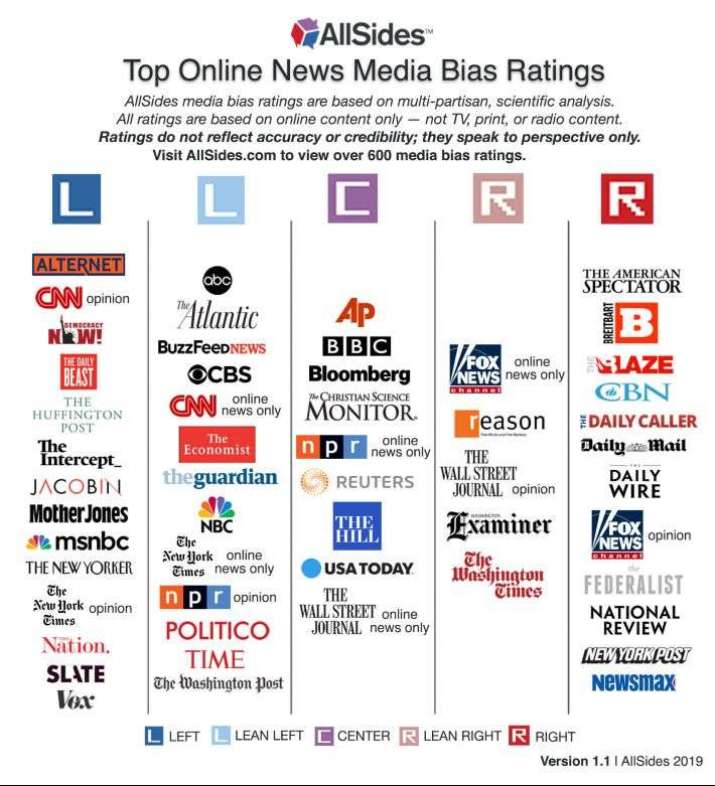FEATURES|THEMES|Commentary
Buddhistdoor View: Media Bias and the Ongoing Effort to See Clearly

It’s 2020, an apt time to polish our lenses and renew our vows to see things as they truly are. As representatives of the media, we at Buddhistdoor Global take on a special responsibility with regards to this vow of clarity. As a Buddhist media platform, we interpret clarity as an antidote to our deep human ignorance. With greater clarity about ourselves and our world comes insight and a reduction of suffering. As such we take the Buddhist quest for right speech as a guiding star in our work to deliver features and news content from around the world to you.
In today’s world, polarization has become endemic to both the political sphere and that of the media. Certain news sources have become virtual mouthpieces for political individuals and parties. The result has been a silo effect, in which viewers of one outlet are given a completely different spin on reality from viewers of another outlet. The growing academic response has been to attempt to categorize the various outlets and to urge citizens to make a broad and informed take on the news.
 All Sides Media Bias Chart. From allsides.com
All Sides Media Bias Chart. From allsides.comThe result, however, has not been an enlightened objectivity with regards to the news, but rather an at-times-paralyzing pessimism with regard to the state of the world. In part this is because news outlets have made use of our human negativity bias: we more easily remember negative news than good news. Therefore, the news media that is chasing viewers and clicks will focus on the negative. “If it bleeds, it leads,” is the old industry wisdom.
Twenty years ago this would have meant a barrage of negative headlines on newspapers and tabloids. When we became burned out on the negativity then, we could simply turn off the TV and avoid newsstands. But today our personal TV and newsstand—our smartphone—almost never leaves our hand or pocket. The result is that we cannot avoid the negativity and perhaps with it the feelings of hopelessness and helplessness.
As the Internet has made access to the media nearly universal and ubiquitous, concerned journalists have seen the need for new paradigms in reporting. We’ve seen the rise of solutions journalism, restorative journalism, and “good news” networks to help ensure that people see the good in the world as well as the suffering and problems, numerous as they might be. But the mere fact that there is much good in the world, which itself is a truth, fails to offer clarity of direction. Are things improving because global poverty is rapidly decreasing and availability of life-saving vaccines are at all-time highs? Or is the world doomed due to ongoing inaction by political leaders to the climate crisis, spreading international instability and rise of nationalist populist politicians?
What can a journalism based in Buddhist ethics offer in this time? It can and must acknowledge the suffering of the world, including that which falls under the rubric of injustice. The Buddha famously did this very carefully by undermining the dogma of caste (or class) in his society as well as the rigid place of women, thus opening his spiritual path equally to people from all walks of life. Without saying it in so many words, the Buddha pointed out the injustice of the rigid systems of his time and, through his alternative society of the Sangha, offered more just conditions to the world.
As a media organization, a way of following the Buddha’s example is to seek out those who are disempowered in our society today and offer to serve them. Heather Bryant, a journalist and founder of the collaborative journalism network Facet, noted last month that “We’ve seen news that actually serves the public, and we’ve seen arguably more that serves power instead.” (Nieman Lab)
She clarifies:
The newsroom that publishes an accessible and clear explainer of the ballot for an upcoming election is doing the service of journalism. The newsroom that runs the breathless account of winners and losers from a televised debate is participating in the industry’s attention marketplace. The newsrooms that report out a politician’s claims before amplifying them are doing journalism. The newsroom that rapidly retweets false claims are jumping at bait in exchange for attention. (Nieman Lab)
Accessibility and clarity are heralded as journalistic virtues and yet these could just as easily be offered as aspects of the Buddha’s and later Buddhist master’s upaya, or skill in means in communicating the truth. And yet skill can be misused without a fundamental moral direction. In 2008, journalist and professor of media ethics with a focus on global-local (or “glocal”) journalism Douglas McGill summed it up well:
On a social level, suffering in Buddhism is defined as any harshness, violence, and division of the community. A Buddhist journalism would therefore be aimed at helping individuals overcome their personal sufferings, and helping society heal the wounds caused by injustice, hatred, ostracism, and physical violence. Such a defined professional purpose would give the Buddhist journalist a measuring stick for each word and story produced: does it help overcome individual and social suffering? (McGill Report)
The Buddha could not necessarily heal the social conditions of his time, but he could offer a clear alternative. Likewise, we may not be able to eliminate the media bias and extremes in the world at present, but we can offer a home for writers and news articles that offer clarity and a balm to the suffering of the world. This is an alternative, a move against the stream of those media outlets that cater to power of this sort or that. It is an opportunity to seek out those who are suffering, those who may not have a voice but need it.
See more
Some kinds of journalism aren’t worth saving (Nieman Lab)
The Buddha, the Dharma and the Media (McGill Report)
Related features from Buddhistdoor Global
Buddhistdoor View: A Buddhist Vision of Media and Journalism
Shining a Compassionate Light on Violent Communication
Buddhist Journalism in an Age of Global Distrust














